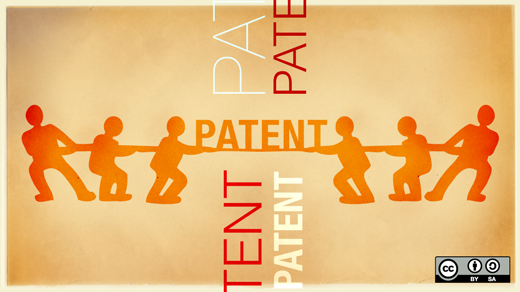We talk a lot about what might be done to fix the problems of software patents, but not much about abolishing them. Abolition seems well-nigh impossible, given current economic and political realities. Serious economists and respected financial institutions don’t usually discuss it publicly. Thus, I was surprised when I finally got around to reading a recent working paper published last month under the auspices of the Federal Reserve Bank of St. Louis that argued broadly for patent abolition position.
The paper by two distinguished professors of economics, Michele Boldrin and David K. Levine, is titled The Case Against Patents. Boldrin and Levine review some of the lamentable realities of the U.S. patent system, including the dramatic increases in issuance of patents that block future innovation, and in the quantity and cost of patent litigation. They also point out that patents are often detrimental to consumer welfare, as once-but-no-longer innovative companies use patents to block competitors.
As Boldrin and Levine explain, patents are not really property rights, but rather monopoly rights. The grantees of a government monopoly have strong incentives to seek additional rents to expand their monopoly.
[A] system that at one time served to limit the power of royalty to reward favored individuals with monopolies has become with the passage of time a system that serves primarily to encourage failing monopolists to inhibit competition by blocking innovation.
After reviewing the economic literature, Boldrin and Levine find almost no evidence that patents serve innovation, and conclude that "the patent system taken as a whole does not play an important role in spurring innovation." They acknowledge that in theory it is possible to create a patent system that would foster innovation. They also recognize that there are various possible ways of improving the existing patent system, including "properly interpreting obviousness, requiring genuine disclosure of working methods and an independent invention defense against patent infringement..." But, they ask, "why use a band-aid to staunch a major wound?"
They propose phasing out patents by shortening their duration and otherwise limiting their force. Some of their argument is phrased in the rather dry language of economics, but not this point: "If a well-designed patent system would serve the intended purpose, why recommend abolishing it? Why not, instead, reform it?... Our argument is that it cannot be otherwise: the 'optimal' patent system that a benevolent dictator would design and implement is not of this world and it is pointless to advocate it as, by doing so, one only offers an intellectual fig-leaf to the patent system we actually have, which is horribly broken. It is fine to recommend reform, but, if politics make it impossible to accomplish that reform, if they make it inevitable that we have a patent system it will fail, then abolition—preferably by constitutional means as was the case in Switzerland and the Netherlands prior to the late 19th century—is the proper solution..."
Is this just crazy talk? The inherent social and economic forces that Boldrin and Levine say are bound to cause the system to fail are also bound to defend the system fiercely. But it is certainly provocative.







40 Comments